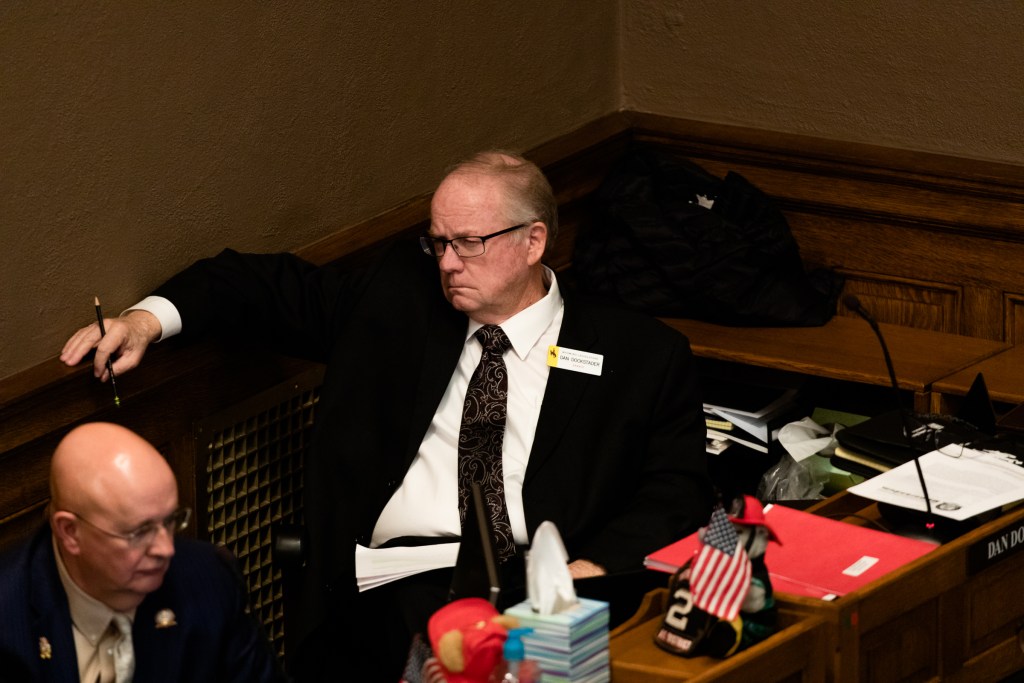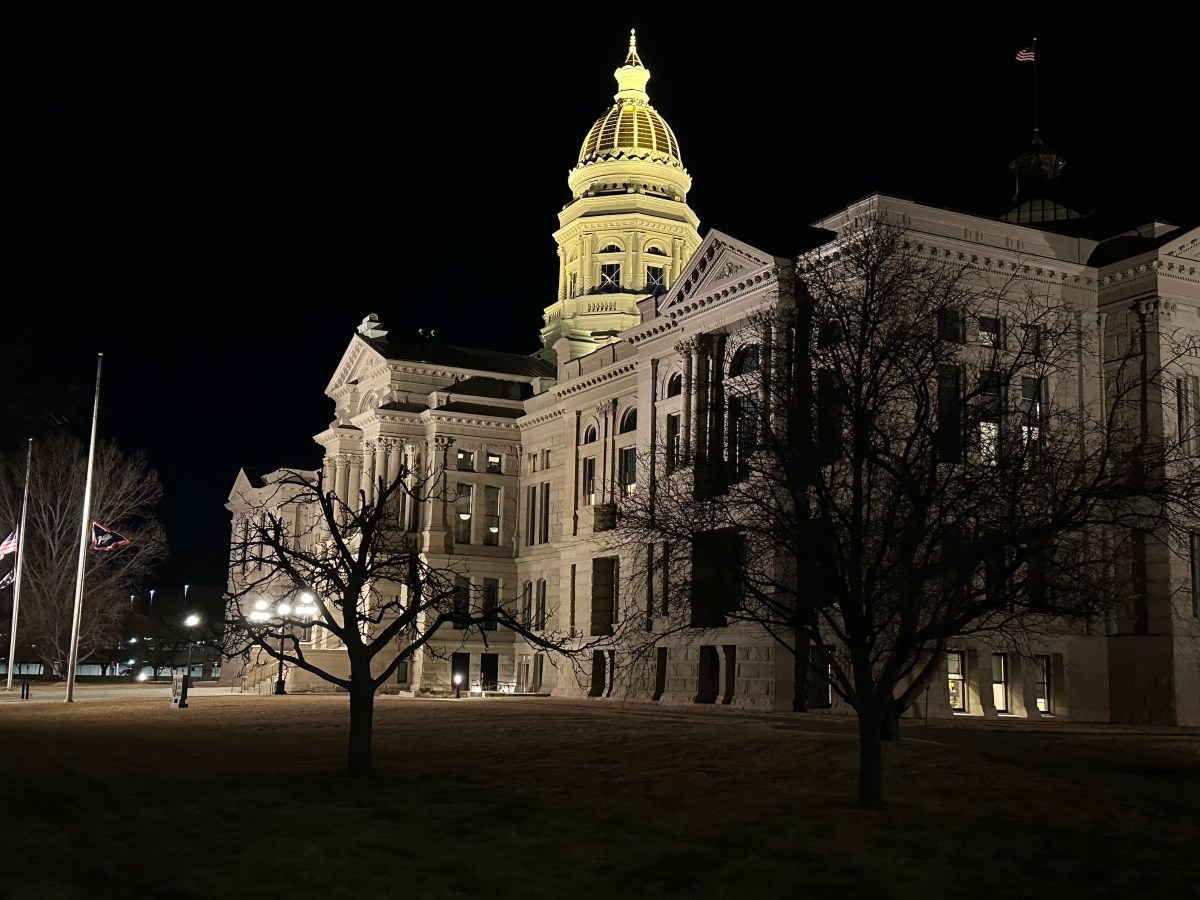The Wyoming Legislature passed five property tax bills in the 2024 session, each a necessary action to help Wyoming families suffering from rising property taxes. Four of them became law, while one was vetoed by Gov. Mark Gordon.
Opinion
Property tax relief is a hot topic of conversation here in Wyoming, as it has been everywhere across the country. Soaring real estate prices and climbing property taxes have put the pinch on just about everyone. While Wyoming ranks around 10th nationwide for the lowest property tax rates, that’s cold comfort for those in the state struggling with significant year-after-year property tax increases. That’s especially the case in Wyoming communities where prices and taxes are already stretching the family budget.
This is why in the recent legislative session lawmakers brought another slew of bills to try and find even more workable solutions. But political talking points shared by groups like the Wyoming Freedom Caucus after the session may have left some Wyoming residents with the belief that little to no relief is available to them. This isn’t true.
These passed and signed budget session bills are very much available to citizens. Here’s a rundown of those bills passed by the Legislature:
House Bill 4 – Property tax refund program is a property tax refund bill passed unanimously in both chambers. The bill expands the already existing property tax relief program so more Wyoming citizens qualify. Last year, according to reporting, a record number of Wyoming residents applied for property tax relief through this program after lawmakers expanded it in the 2023 session.
House Bill 4 allows an income expansion from 125% of the county’s median gross household income to 165%, and puts into place a tiered system for eligibility requirements.
It is highly likely the state will once again see record numbers of Wyoming citizens utilizing this form of property tax relief. House Bill 4 was passed almost unanimously in both chambers of the Legislature. The deadline for applications to this program is June 3. Wyoming citizens should be sure to check out the program at the Wyoming Department of Revenue. With this program, please keep in mind you must pay your property taxes in full before you are eligible for relief.

Senate File 89 – Veterans ad valorem exemption-amount is a veterans exemption bill that increased the already existing exemption for veterans on their property taxes from $3,000 to $6,000. It also passed almost unanimously.
House Bill 3 – Property tax exemption for long-term homeowners created a long-term homeowner’s tax exemption for Wyoming citizens 65 years of age or older who have paid property taxes in Wyoming for at least 25 years. For those who qualify, it gives them a 50% assessment value exception on their tax bill. This bill passed almost unanimously.
And finally, House Bill 45 – Property tax exemption-residential structures and land also passed almost unanimously. This last bill exempts annual property tax increases over 4%, putting into place a “cap” of sorts on residential property taxes. This bill was a workaround to keep the bill within the limits of the Wyoming Constitution.
Why was a workaround needed?
Wyoming’s Constitution lists three classes of property tax: mineral, industrial and all others. This means residential property tax sits in the “all others” category along with commercial property tax, making it much more difficult for lawmakers to find solutions for residential property owners without affecting commercial property taxes.
Commercial giants like Walmart and Microsoft’s large commercial properties sit in the same constitutional category as a Wyoming retiree’s two-bedroom, two-bath home in Laramie. This has become a real problem for finding those neatly targeted solutions the state needs during this time of soaring property taxes.
Those who want a better breakdown of the three tax categories can look to organizations like the Wyoming Taxpayers Association. According to the group’s 2023 property taxation report, mineral production accounted for 52% of taxes paid, with residential property at 29%, industrial (state and local assessed) at 11%, commercial at 6%, and agricultural lands at 2%.

There’s also an effort underway to address the constitutional constraints on property tax relief. In 2023, Sen. Dan Dockstader (R-Afton) brought a resolution to be placed before Wyoming voters to change Wyoming’s Constitution. Senate Joint Resolution 3 passed and was signed by the governor, paving the way for a November ballot initiative to change the constitutional tax structure. A “yes” vote at the ballot box supports the creation of a fourth separate class of property, thereby adding residential real property as its own category within the Wyoming Constitution. This should give the Legislature more flexibility in assessing a different rate and providing relief for owner-occupied primary residences in Wyoming.
All of these bills give Wyoming citizens a broad variety of ways to find relief on their rising property taxes, and this is a good thing.
It might be surprising to many that these bills passed, given how much attention was put on the one property tax bill vetoed by the governor, and given the time some lawmakers spent demanding a special session to address property tax relief. But, the reality is much different.
The 2023 and 2024 Legislatures achieved some good work for Wyoming citizens. Now it’s time for those citizens to take advantage of the opportunity to get some of their hard-earned money back into their pockets.



I have no issue with paying fair and equitable property taxes. What does bother me is that during the past 5 fiscal years, as property valuations increased due to market conditions my county’s total property valuation increased by 63.2%. For the past two years it was 48.7% alone. I have no clue what this fiscal years county valuation is yet, but my property valuation increased 55.9%. Not once during the past 2 years has the county considered lowering the mil levy even though they have had an additional 1.3M dollars to spend. That’s the kind of mentality that bothers me. I am thankful that the Legislature made some serious progress on tax relief……but I contend that it should have started earlier at the local level. It’s always easier to spend someone else’s money. There are needs and wants. We all learn to live within our financial constraints and that’s where you weigh needs versus wants.
One last thought, I’m believe that most families pay more per month for their cell phone service, streaming services, broadband, etc….than they do for their property taxes. It boils down to how folks value the service that they receive for the $$ paid.